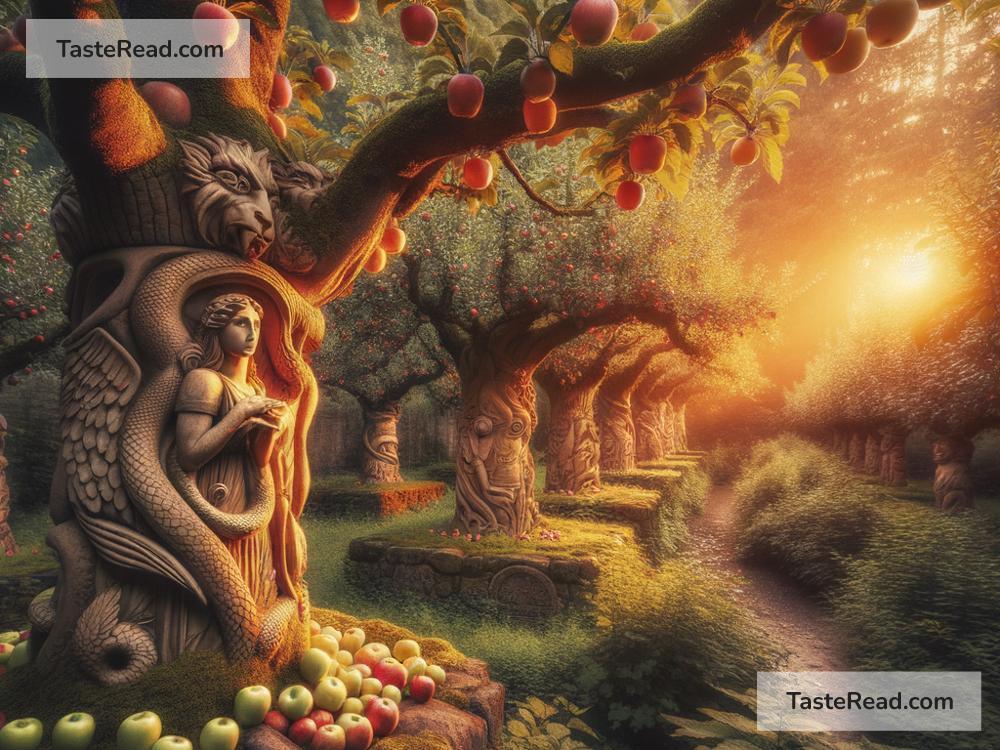The Curious Tale of Apples in Ancient Mythology
Apples are one of the most common fruits we grow and eat today. They come in different colors, such as red, green, and yellow, and are enjoyed as snacks, desserts, or even in drinks. But did you know that apples also have a fascinating history in ancient mythology? Throughout history, apples have held special meaning in stories from different cultures around the world. They are often linked to themes like love, temptation, knowledge, and power. Let’s uncover the curious tale of apples in ancient myths and legends.
The Golden Apple in Greek Mythology
In Greek mythology, one of the most well-known stories involving an apple is “The Judgment of Paris.” This tale begins with a golden apple labeled “To the Fairest,” which was created by Eris, the goddess of discord. She threw the apple into the middle of a wedding celebration to cause trouble because she wasn’t invited.
Three powerful goddesses—Aphrodite (goddess of love), Hera (goddess of marriage), and Athena (goddess of wisdom and war)—all believed they deserved the title “fairest.” They asked a young prince named Paris to decide who should get the apple. Each goddess tried to bribe Paris with gifts. Hera offered him power, Athena offered wisdom and skill in battle, and Aphrodite promised him the love of the most beautiful woman in the world. Paris chose Aphrodite’s gift, setting events in motion that led to the famous Trojan War.
In this story, the apple symbolizes temptation and rivalry, as well as the consequences of difficult choices.
Apples in Norse Mythology
Norse mythology also has a special connection to apples. In these tales, apples are linked to youth and immortality. The goddess Idun is the keeper of magical apples that give eternal youth to the gods of Asgard. These apples are vital because they help the gods stay strong and healthy, despite their many battles and challenges.
One famous story tells how Idun is kidnapped by the trickster god Loki and handed over to a giant named Thjazi. Without Idun’s apples, the gods begin to age and lose their energy. Eventually, Loki is forced to rescue her and return the apples to Asgard.
In Norse mythology, the apple is a symbol of life, renewal, and endless vitality.
Apples in Christian Traditions
Apples also appear in religious stories, particularly in the Bible. While the Bible doesn’t explicitly name apples, many people associate the fruit in the Garden of Eden with apples. In the story of Adam and Eve, God forbids them from eating from the “Tree of Knowledge of Good and Evil.” However, a serpent tempts Eve to disobey God, and she eats the fruit. Adam follows her lead, and as a result, they are banished from the garden and face the hardships of mortal life.
Over time, artists and writers imagined this forbidden fruit as an apple, possibly because apples were commonly found in Europe. In this context, the apple represents temptation, sin, and the human desire for knowledge and independence.
Apples in Celtic Mythology
In Celtic mythology, apples are seen as magical fruits connected to the Otherworld, a mystical realm of spirits and gods. Apples often appear in stories about journeys, magical islands, and eternal life. For example, in Irish folklore, there is a tale about a hero named Connla who receives an apple from a woman from the Otherworld. The apple has magical powers—it never runs out and keeps Connla fed on his journey.
Apples were also associated with wisdom and prophecy in Celtic traditions. Druids and other learned figures often considered apples sacred and used them for rituals.
The Role of Apples in Symbolism
Why are apples so prominent in mythology across cultures? One reason could be their unique appearance and sweetness. Apples are beautiful fruits that can be red, shiny, and tempting. They are also nutritious and long-lasting, making them important in everyday life throughout history.
Another reason may be that apples can represent both good and bad aspects of human nature. They can symbolize life, health, and renewal, but they can also stand for temptation, greed, and conflict—depending on how they are used in stories.
Apples Today
Although their mystical importance may have faded, apples are still a big part of our lives. They show up in phrases like “an apple a day keeps the doctor away” and in traditions like bobbing for apples during harvest festivals. In modern culture, apples are often tied to learning and education, such as the way teachers are traditionally given apples as gifts.
The curious tale of apples reminds us that even something as simple as a fruit can hold deep meanings in stories and culture. Whether they represent wisdom, youth, love, or temptation, apples have played a powerful role in connecting people to larger ideas about life and humanity.
So, the next time you bite into an apple, think about the incredible journey this humble fruit has taken through the myths and legends of the past. Who knows? Maybe it still holds a splash of magic in every bite!


